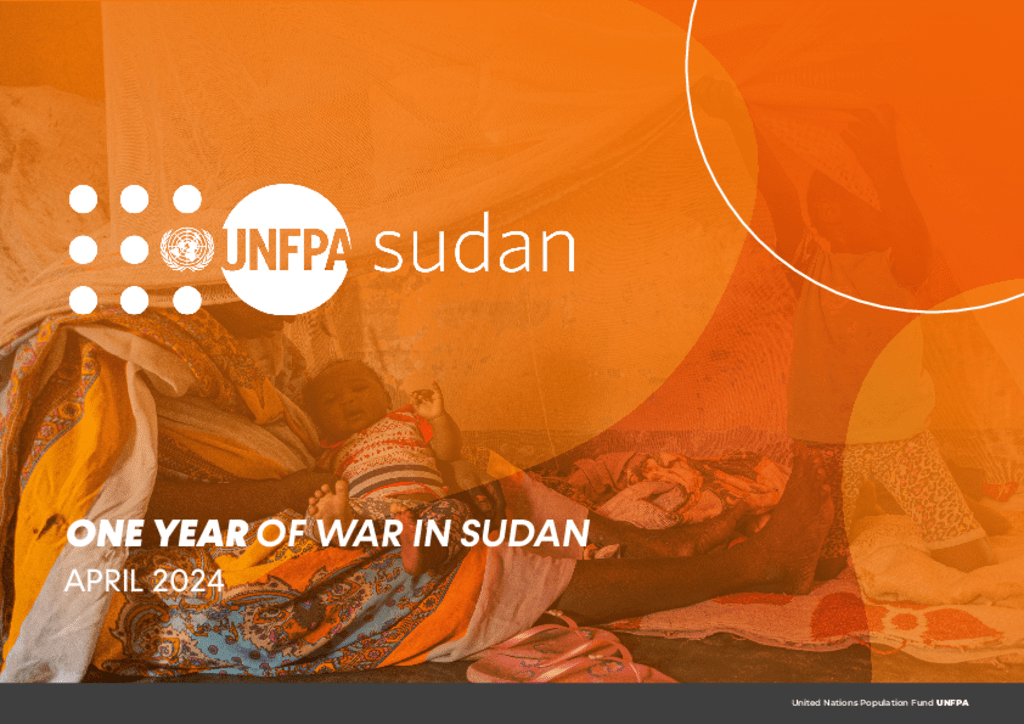
Resources
One Year of War in Sudan - April 12, 2024
Resource date: Apr 2024
Publisher: UNFPA Sudan

Resources
Resource date: Apr 2024
Publisher: UNFPA Sudan
The conflict in Sudan has resulted in the largest displacement crisis globally, with 8.5 million people forced from their homes, including 1.56 million women and girls of reproductive age. Over 6.5 million people are internally displaced, and the situation is particularly dire for pregnant women, with nearly 155,500 expected to give birth in the next three months. Nearly 5 million people are on the verge of famine, and 18 million face acute food insecurity due to conflict, economic instability, and rising food prices.
Access to essential sexual and reproductive health (SRH) services is dwindling, placing pregnant and lactating women at heightened risk of complications. Hospitals are overwhelmed, with 80 percent of hospitals in conflict-affected areas non-functional due to destruction and shortages of supplies and staff. This scarcity of resources and services exacerbates challenges for women and girls in need of reproductive healthcare, leaving them with nowhere to turn and vulnerable to sexual violence, coercion into marriage, and lack of protection services.
The despicable use of sexual violence as a tactic of war further compounds the crisis, with reports of rape, enslavement, and murder, particularly in regions like Darfur, Khartoum, and Kordofan. Young girls are coerced into marriage for protection, and families facing food insecurity resort to marrying off their young daughters. The absence of protection services amplifies trauma and vulnerability to gender-based violence (GBV), leaving women and girls in fear without adequate support or justice.
Despite these challenges, UNFPA and its partners, many of whom are local and women-led organizations, are diligently addressing the needs of affected women and girls. UNFPA's efforts have resulted in over 3,000 safe births, provided SRH and medical services to 100,000 individuals, distributed emergency reproductive health supplies to over 168,000 people, and facilitated 1,200 obstetric emergencies referrals. Moreover, 33 mobile and temporary clinics have been deployed to offer integrated SRH/GBV services, 50,000 dignity kits distributed to women and girls, 64 safe spaces established, and 1,400 partners and community members trained on preventing sexual exploitation and abuse (PSEA).